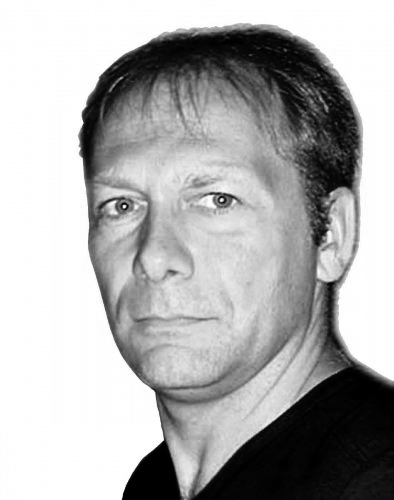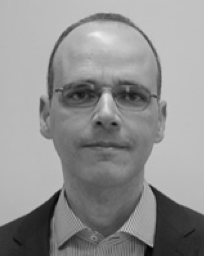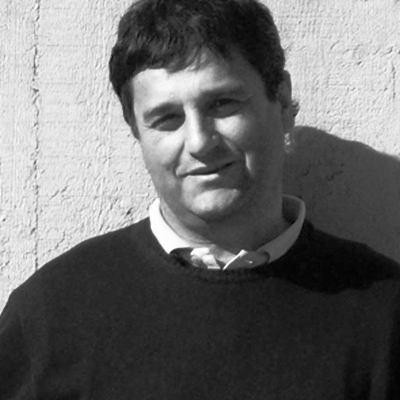Topic Two
THE SOCIAL DIMENSION OF THE HOUSING PROBLEM. REORGANIZING SOCIETIES AND CITIES IN MODERNITY
Table coordinator | VIRGILIO BORGES PEREIRA
With industrialization and modernity, the relations between society and housing became increasingly problematic. Although socially and politically constructed, the genesis of these problems is usually forgotten, or not totally taken into account, when it comes to think about the modern history of the cities and the role of the “housing question” in their current definition. This section of the conference invites scholars to specify the social and political configurations underlying the development of social housing programmes and to understand the significance of State’s action in the shaping of modern cities.
Guest Speakers

Olivier Chadoin is a sociologist and research professor at the ENSAP Bordeaux. His work focuses on the city and architecture and their production systems. It includes the world of architectural and urban production and its agents as a specific production field and architecture as a material and symbolic event took in games and challenges of the social world whose symbolic domination is a dimension. He is a member of editorial boards « Espaces et Sociétés », « Revue Française des méthodes visuelles », Editions de La Villette and RAMAU. He has published La cité refuge de l’armée du salut de Le Corbusier et Pierre Janneret, avec G. Ragot, Ed. du patrimoine, 2016 ; Etre architecte : les vertus de l’indétermination - de la sociologie d’une profession à la sociologie du travail professionnel, PULim, Coll. « sociologie », 2007; La ville des individus – Sociologie, urbanisme et architecture, propos croisés, Paris, L’Harmattan, 2004 ; Activités d’architectes en Europe : nouvelles pratiques, Dir. Avec T. Evette, Paris, Ed. de la Villette, 2003 ; Du politique à l’œuvre - Systèmes et acteurs des grands projets urbains et architecturaux, avec P. Godier et G.Tapie, He regularly publishes in scientific journals and edited volumes.

Virgílio Borges Pereira is a tenured Associate Professor of Sociology at the Department of Sociology of the Faculty of Arts of the University of Porto, where he teaches since 1994, and a researcher at the Institute of Sociology of the University of Porto - a Research Unit of the national scientific and technological system that he directed between March 2010 and April 2015. Since 2003, he collaborates with the Faculty of Architecture of the University of Porto. Since 2008, he is an associate researcher at the Center of Studies in Architecture and Urbanism of the University of Porto. His research work is very much influenced by the discussion of the sociological legacy of Pierre Bourdieu’s work and focuses on the production of social and cultural inequalities in different spatial contexts of Northern Portugal. The city of Porto and the valleys of the rivers Ave and Sousa have been specially targeted by his works. Housing policies and their urban and social effects constitute a frequent field of his studies.

Eliseu Gonçalves is an architect and Assistant Professor at the Faculty of Architecture, University of Porto – FAUP, where he graduated in1994 and obtained his PHD in Architecture (2015). In 1994 he received the Eng. António de Almeida Foundation Award. Between 1994 and 2001, he worked in Manuel Fernandes de Sá’s architectural office; simultaneously, opened his own office where he developed several works of architecture and urbanism, highlighting the requalification of the riverside fronts of Porto and Vila do Conde and the construction and rehabilitation of residential buildings located mainly in the north of Portugal. Within the scope of his interests and academic research, he has given special attention to the relationship between Architecture and Construction from the perspective of the modernism culture, the portuguese social housing, the modern comforts in the first half of the 20th century; energy, climate and architectural form within the framework of the "well-tempered house". His PhD thesis was about working-class housing in Porto in the beginning of the last century (FCT Scholarship – Fundação para a Ciência e a Tecnologia). Part of the research has been presented at conferences and journals. Since 2009 he is a member of the research group Atlas da Casa - Housing architectural design and forms of dwelling - from the Architectural and Urbanism Research Center, CEAU/ FAUP. Currently he is the coordinator of the research project "Mapping Public Housing: a critical review of the State-subsidized residential architecture in Portugal (1910-1974)” – I&D/FCT: P2020-PTDC/CPC-HAT/1688/2014



